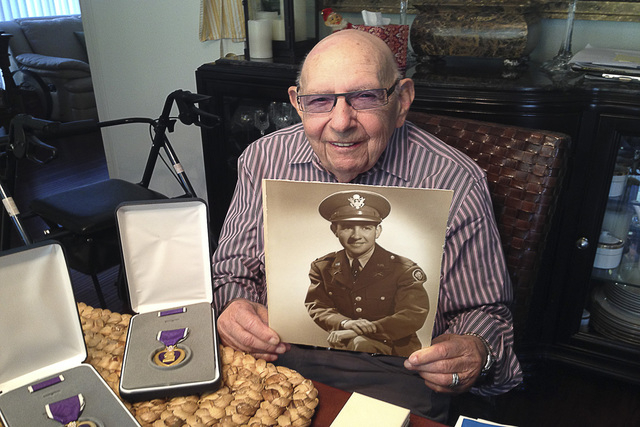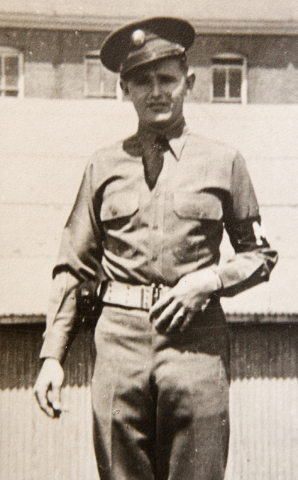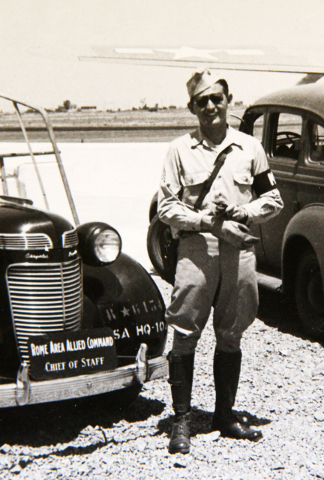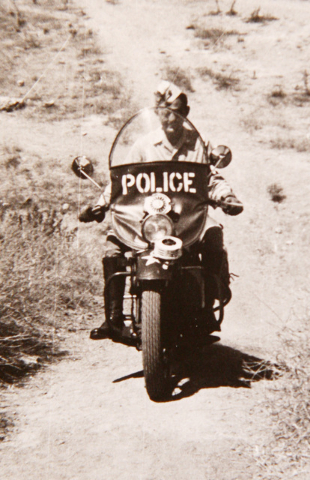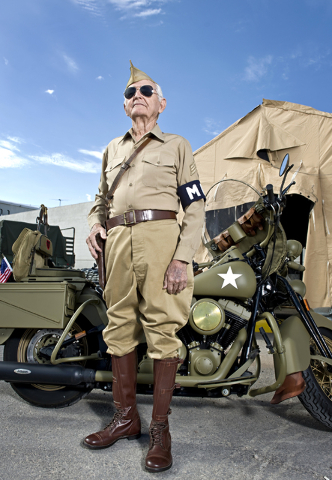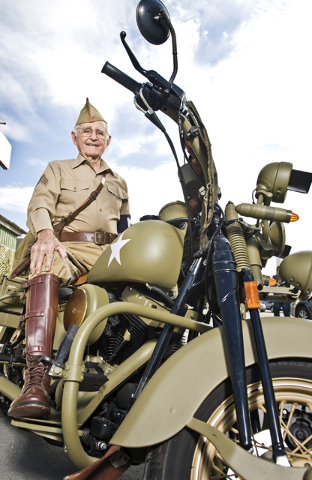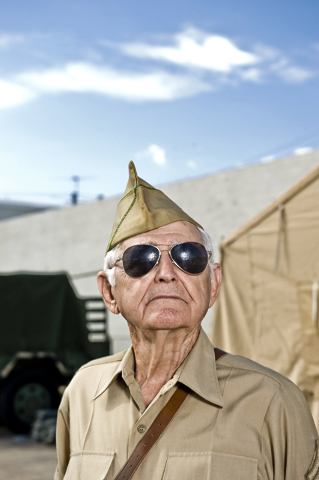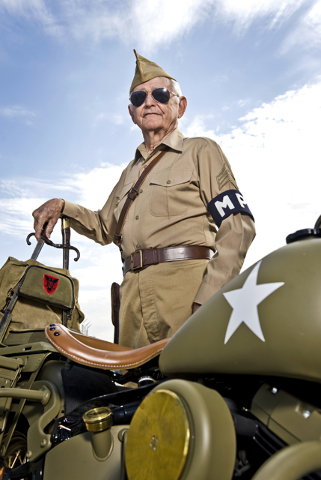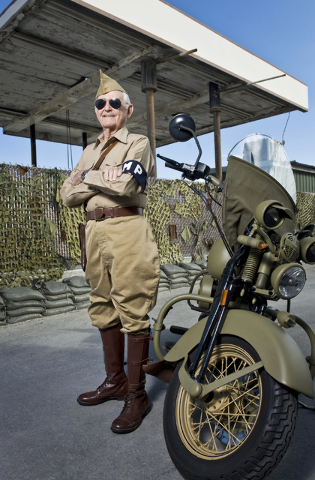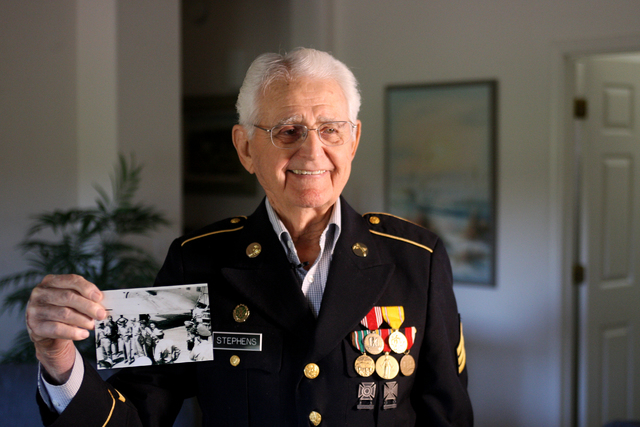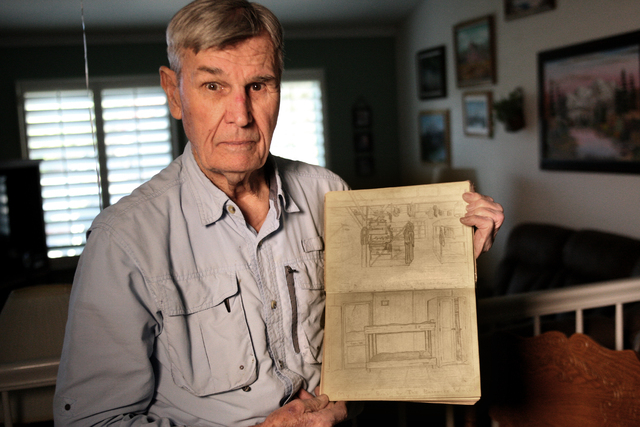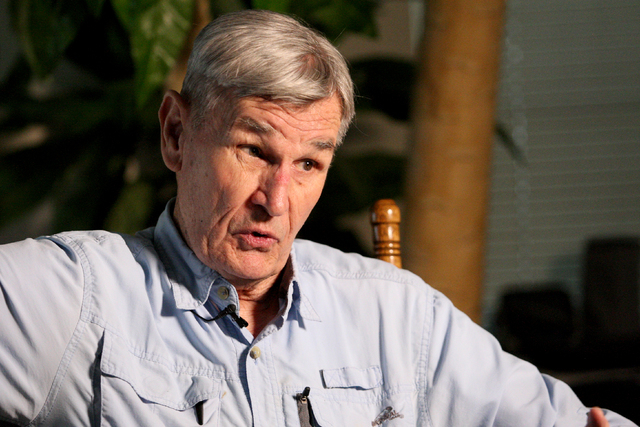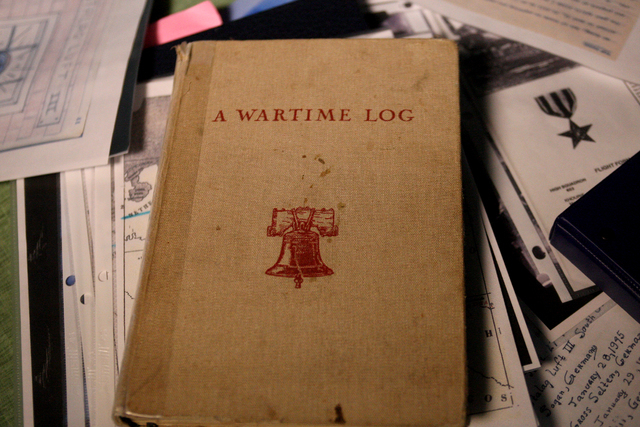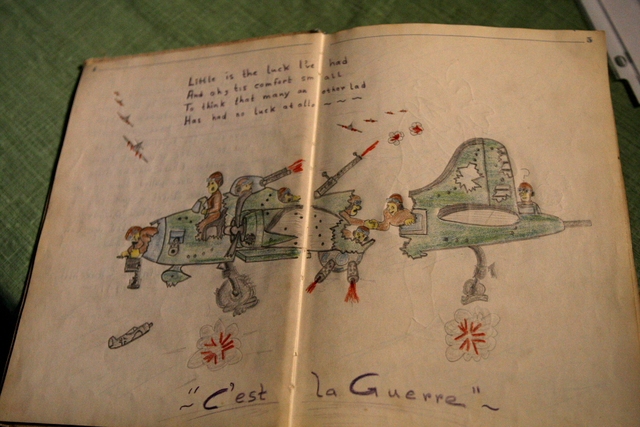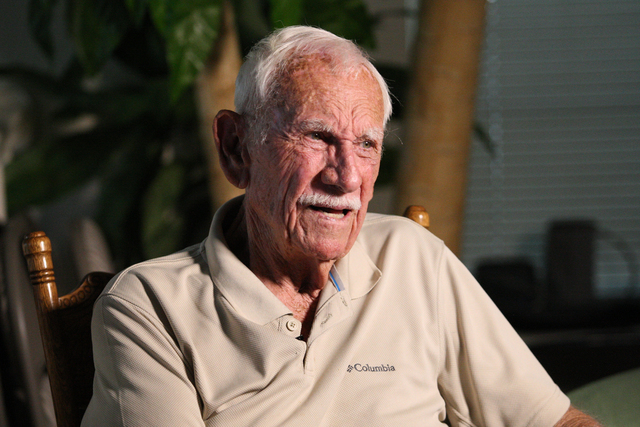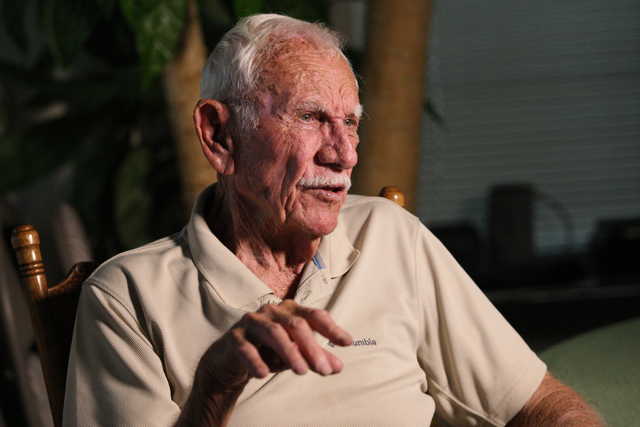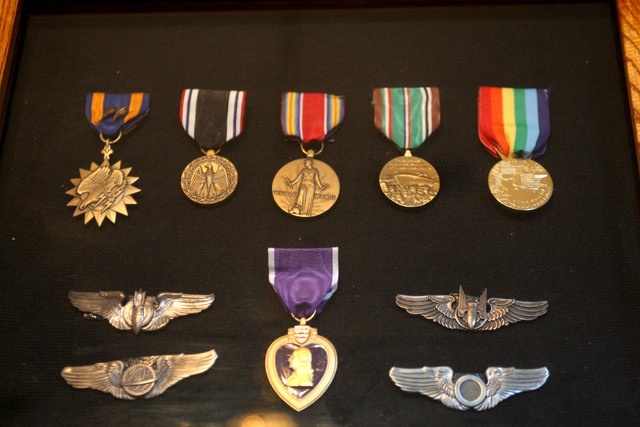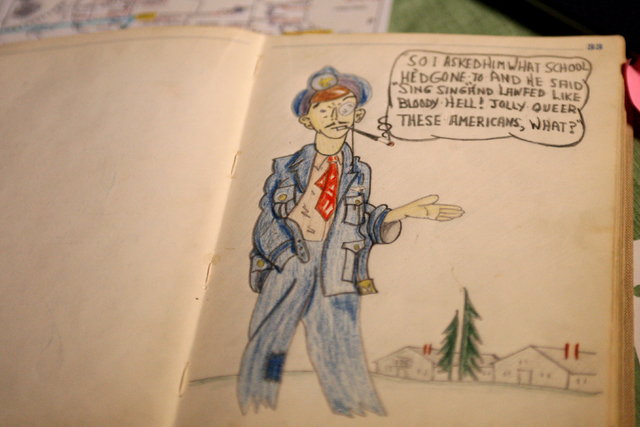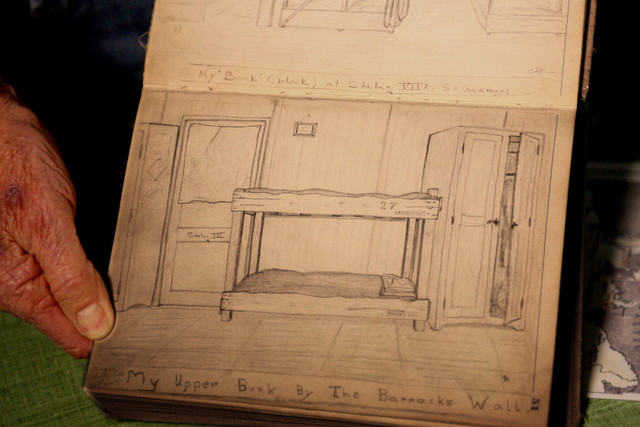World War II vets recall the end of war in Europe
Looking back 70 years ago today, when crowds in many big cities danced in the streets to celebrate Victory in Europe Day on May 8, 1945, some World War II veterans from Las Vegas instead remember the quiet observance after prison camps were liberated and they realized they would be going home.
The thought crossed their minds, however, that V-E Day was a turning point but not the end of global war.
“We all were greatly relieved to have that part of the war over, but we all figured if we were able that we’d probably be part of the continuing war in Japan,” said Carroll Knutson, 91, of Las Vegas, who survived German prisoner-of-war camps during the last years of World War II.
“So it wasn’t, ‘Hooray, everything’s over.’ It was just, ‘Whew!’ We’ve finished one step now we’ve got to finish the rest of them,” he said, reflecting on V-E Day in an interview last month.
“I think that was a great experience for everyone that was in it,” Knutson said, describing the “sarcastic humor” and cartoonish artwork that American POWs created to help endure their long days of near-starvation.
“I think we all feel that every day is a gift that we’ve been given. And looking back on the 8th — V-E Day — we also view that as a gift that we were given,” he said.
Knutson and two other Las Vegans, Dean Whitaker and Alan Dunbar, were liberated from the infamous Stalag VII-A camp at Moosburg, Germany, on April 29, 1945, by a task force from Gen. George S. Patton’s 14th Armored Division.
Whitaker, a bombadier-navigator, and Knutson, a co-pilot, were both young officers captured after their B-17 bombers were shot down and they were forced to parachute into enemy territory on separate missions in 1944.
Dunbar, captain of a communications platoon in the 422nd Infantry Regiment, was among 7,000 soldiers from the 106th “Golden Lion” Division who surrendered in December 1944 after being cut off during the Battle of Bulge.
“I knew it was just about time the Americans and allies would come through. It was pretty nice,” Dunbar recalled Thursday — his 97th birthday.
“It means what we were doing was right for the country even though there was an interlude with being a POW,” he said. “We were outnumbered from the word, ‘go.’ There was a lot of good men lost because of it. It leaves a bad taste in my mouth.”
Whitaker at 90 is the youngest of the group. He and Knutson, both from Southern California, learned only a few years ago at a reunion that they were held in the same camps at the same time. Both were held at Stalag VII-A and at Stalag Luft III, near Zagan, Poland — the scene of the famous “Great Escape.”
“We probably passed each other innumerable times walking the perimeter,” Knutson said.
Like Dunbar, they also endured a march through a blizzard on their way to Moosburg, where Patton’s son-in-law, Lt. Col. John K. Waters, was also captive and became a catalyst for their liberation. He had been captured in Tunisia in 1943.
Said Knutson: “My 18th birthday, I was a senior in high school. My 19th birthday I was an aviation cadet. My 20th birthday I was flying B-17s. My 21st birthday I was sitting in a prison camp. And on my 22nd birthday I was a freshman in college.”
Whitaker said V-E Day wasn’t embraced with a rousing celebration. After all, aside from Red Cross food parcels sparingly doled out by their captors, they lived mostly on water and bread that was a third sawdust.
“We didn’t pay much attention to it because we were free,” he said. “What else counted? That day wasn’t that important to us then, but it was afterward when we learned what went on. The importance took hold and it was big, but we didn’t celebrate much.”
Another Las Vegas Army veteran, Gene Stephens, 96, was in Rome with his military police motorcycle unit as word quietly spread that Nazi leader Adolf Hitler had committed suicide and the end of the war was imminent.
That formal surrender came early on the morning of May 7, 1945, in a brick schoolhouse in Reims, where Gen. Alfred Jodl, commander-in-chief of Germany’s armed forces signed an unconditional surrender to Supreme Allied Commander Gen. Dwight D. Eisenhower.
“I had been over there 43 months,” said Stephens, a draftee from Battle Creek, Mich. “Finally we’ll be going home. Everybody was real happy about that.”
V-E Day “was pretty subdued” in Rome, Stephens said.
“We’d been at it so long. Actually I think it was kind of a letdown,” he said. “We were moving, and here we come to a dead stop.
“We didn’t know what was going to happen. Then the next thing we heard rumors that we were going to Japan. And, we were alerted and they started packing up some of our motorcycles,” he said.
Nevertheless, “that was a big moment,” Stephens said. “We were so happy it happened because it was terrible the way the Germans had treated the Jews all that time.”
But orders for the Pacific never came.
On Aug. 6, 1945, a B-29 bomber dropped an atomic bomb on Hiroshima, killing 130,000. Three days later, a second atomic bomb was dropped on Nagasaki, killing as many as 75,000. Imperial Japan surrendered. Aug. 15, 1945, was proclaimed Victory over Japan Day.
Contact Keith Rogers at krogers@reviewjournal.com or 702-383-0308. Find him on Twitter: @KeithRogers2
RELATED
WWII veteran recalls ‘men we left behind’



